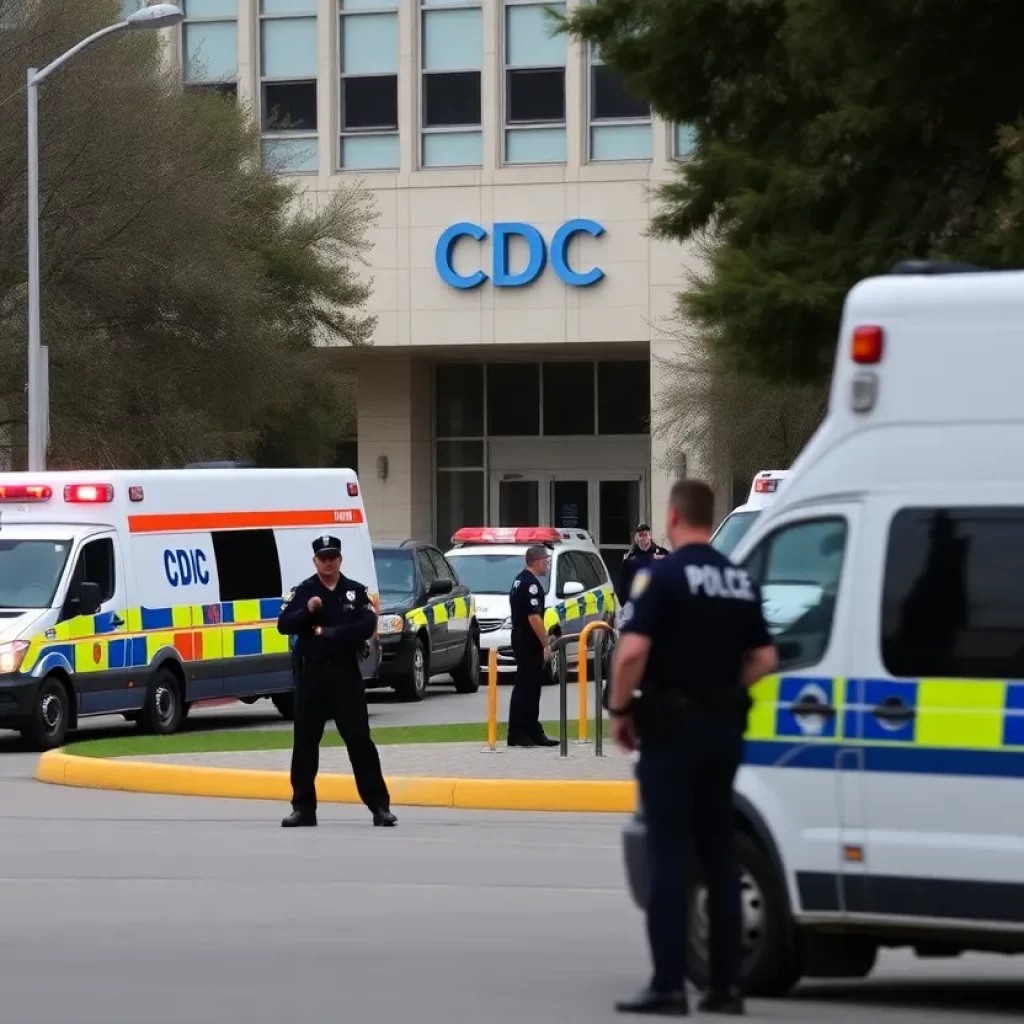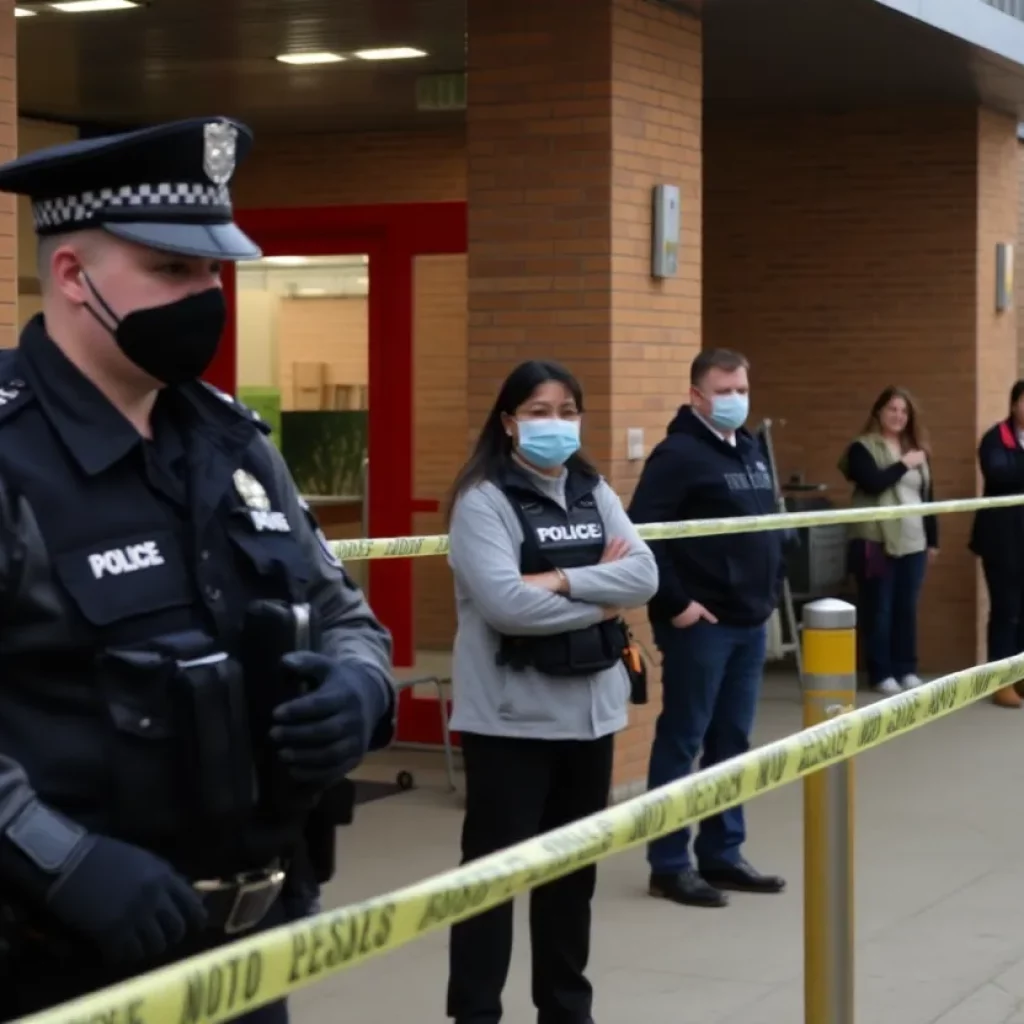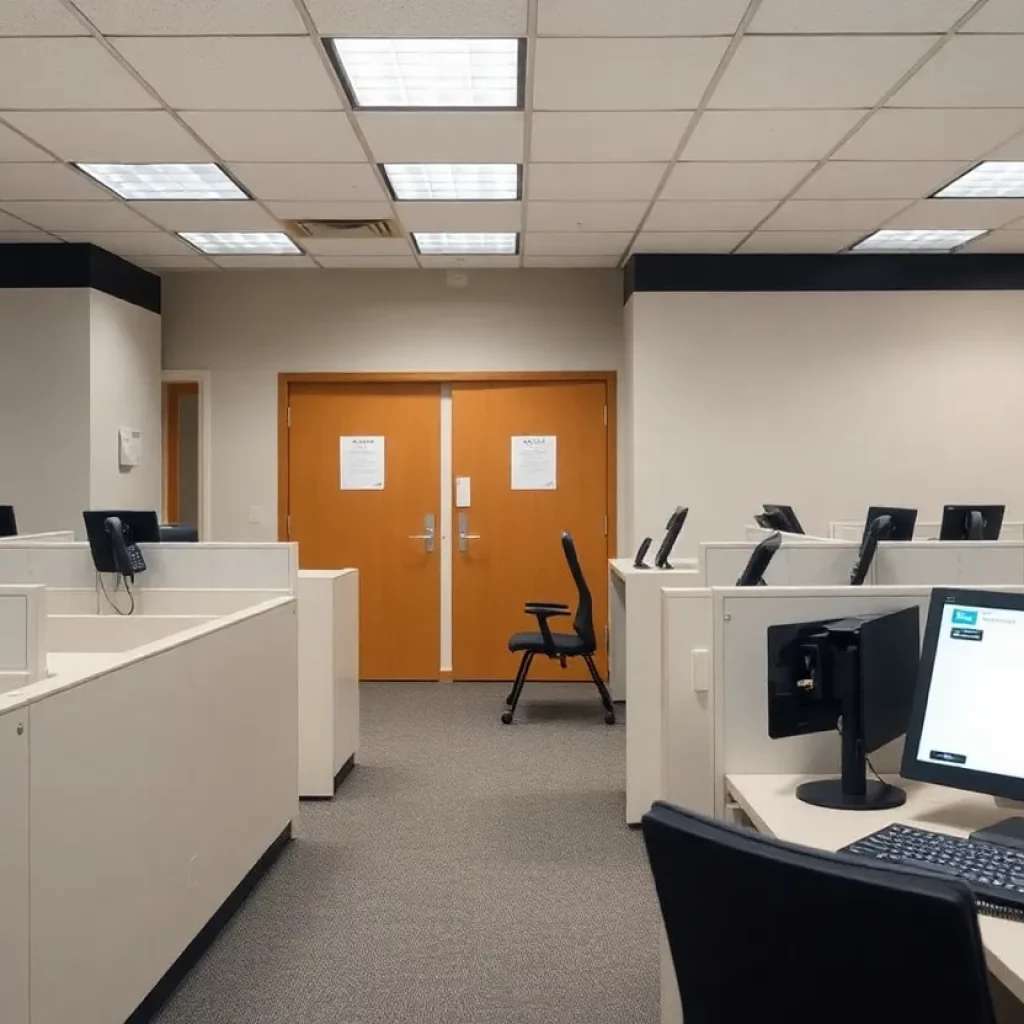Atlanta News
TOP ATLANTA STORIES
BREAKING NEWS
Shooting at CDC Headquarters Raises Safety Concerns
Atlanta, Georgia, August 11, 2025 News Summary A shooting incident at the CDC headquarters in Atlanta led to the death of officer David Rose and intensified worries about employee safety amid...
Atlanta Hawks Reveal New City Edition Uniforms
Atlanta, August 11, 2025 News Summary The Atlanta Hawks have introduced their new City Edition uniforms for the NBA season, titled NBA Fly City Edition 2.0. These jerseys feature a striking...
Atlanta Faces 60% Surge in Food Assistance Need
Atlanta, GA, August 11, 2025 News Summary Atlanta is experiencing a significant food assistance crisis, with a 60% increase in demand compared to three years ago. Currently, one in nine households...
Atlanta Rapper T-Hood Shot and Killed in Snellville
Snellville, Georgia, August 11, 2025 News Summary Tevin ‘T-Hood’ Hood, a prominent Atlanta rapper, was shot and killed during a home dispute in Snellville. The 33-year-old succumbed to his injuries after...
Metro Atlanta Braces for Continuous Rainy Weather
Metro Atlanta, August 11, 2025 News Summary Metro Atlanta is expected to experience daily storms and isolated thunderstorms throughout the week, particularly on Tuesday and Wednesday. Wind speeds of 20 to...
Atlanta CDC Shooting: Officer Remembered as Hero
Atlanta, GA, August 11, 2025 News Summary A shooting incident at the CDC in Atlanta involved suspect Patrick Joseph White, who fired more than 180 shots, leading to the tragic death...
BUSINESS
Business Profile: Sinclair Construction Group
Sinclair Construction Group has been recognized as one of the premier concrete contracting companies in Georgia’s private and public sectors for a decade. Quality workmanship, commitment to safety, and customer satisfaction...
The 10 Best SEO Companies In Atlanta, GA
Are you a business owner in the Atlanta, GA looking for a reliable SEO company to help increase your online visibility and drive organic traffic to your site? Ranking at...
Events/What's Happening
Atlanta Prepares for Hispanic Heritage Month Celebrations
Atlanta, GA, August 6, 2025 News Summary Atlanta is set to honor Hispanic Heritage Month with a diverse range of events from cultural festivals to community activities. The month-long celebration will...
Georgia Chamber Launches Contest for Best Local Product
Atlanta, Georgia, August 5, 2025 News Summary The Georgia Chamber of Commerce has initiated its first contest titled ‘The Coolest Thing Made in Georgia’, encouraging residents to vote for outstanding products...
Atlanta Sees Significant Crime Rate Decline
Atlanta, GA, August 5, 2025 News Summary Recent reports highlight a notable drop in crime rates in Atlanta, with a 24% decrease in violent crime and a 21.5% reduction in property...
Protest Against ICE Policies in Atlanta
Atlanta, GA, August 2, 2025 News Summary On August 2, a significant protest occurred in Atlanta as hundreds gathered for the national ‘Rage Against the Regime’ event. Organized by 50501GA, the...
Virginia Tech Football Prepares for Matchups in Atlanta
Atlanta, Georgia, August 2, 2025 News Summary Virginia Tech football is gearing up for two key games in Atlanta, featuring a season opener against South Carolina and a match against Georgia...
Will Little to Umpire at Speedway Classic
Fall Branch, Tennessee, July 31, 2025 News Summary Will Little, a dedicated MLB umpire, will serve as the home-plate umpire for the Speedway Classic exhibition game featuring the Atlanta Braves and...
Georgia Tech Yellow Jackets Gear Up for Season Opener
Atlanta, GA, July 30, 2025 News Summary As the Georgia Tech Yellow Jackets prepare for their season opener against Colorado, offensive coordinator Buster Faulkner emphasized the team’s depth and leadership. With...
Pittsburgh Yards to Host Estate Planning Workshop
Atlanta, GA, July 30, 2025 News Summary Pittsburgh Yards is hosting a two-day estate planning workshop aimed at equipping participants with essential estate planning knowledge. The event will feature expert-led sessions...
Peanut Day Celebration at Peachtree Road Farmers Market
Atlanta, July 28, 2025 News Summary Atlanta’s Peachtree Road Farmers Market is hosting its annual Peanut Day, inviting locals to enjoy a variety of peanut-themed treats from local vendors. The event...
CRIME
Atlanta Rapper T-Hood Shot and Killed in Snellville
Snellville, Georgia, August 11, 2025 News Summary Tevin ‘T-Hood’ Hood, a prominent Atlanta rapper, was shot and killed during a home dispute in Snellville. The 33-year-old succumbed to his injuries after...
Atlanta CDC Shooting: Officer Remembered as Hero
Atlanta, GA, August 11, 2025 News Summary A shooting incident at the CDC in Atlanta involved suspect Patrick Joseph White, who fired more than 180 shots, leading to the tragic death...
Atlanta Rapper T-Hood Fatally Shot in Snellville Home
Snellville, Georgia, August 11, 2025 News Summary Tevin Hood, known as T-Hood, was shot and killed at his home in Snellville, Georgia. Police are treating the incident as a homicide and...
Two Officers Shot After Confronting Suspect at MARTA Station
Atlanta, Georgia, August 8, 2025 News Summary Two Atlanta transit police officers were shot after confronting a man who was urinating at MARTA’s Five Points station. The suspect, Christopher Daniels, fired...
Armed Robbery in Buckhead Leads to Fatal Car Crash
Atlanta, Georgia, August 2, 2025 News Summary An armed robbery occurred in Buckhead, resulting in a police chase that ended in a fatal car crash. The suspect, Santario Barnwell, attempted to...
Atlanta Police Investigate Homicide of Barry Walker after Fatal Highway Altercation
Atlanta, GA, July 30, 2025 News Summary Atlanta police are investigating the homicide of Barry Walker, who died following a physical altercation on Interstate 75/85. The incident involved a fight that...
POLITICS
DeKalb County Police Officer Killed in Active Shooter Incident
Atlanta, GA, August 9, 2025 News Summary A tragic shooting incident occurred near the CDC Atlanta campus, resulting in the death of DeKalb County police officer David Rose. The shooter, Patrick...
Tragic Active Shooter Incident in DeKalb County
DeKalb County, Georgia, August 9, 2025 News Summary A tragic active shooter incident occurred outside a CVS near the CDC and Emory University, resulting in multiple casualties, including the death of...
Shooting Near CDC and Emory University Claims Officer’s Life
Atlanta, August 9, 2025 News Summary A shooting incident near the CDC and Emory University in Atlanta resulted in the death of Officer David Rose as he responded to reports of...
Tragic Active Shooter Incident at Emory University
Atlanta, Georgia, August 8, 2025 News Summary An active shooter incident at Emory University has resulted in the death of a police officer and plunged the surrounding community into lockdown. Eyewitnesses...
Tragic Incidents Shake Communities Across Georgia
Georgia, August 8, 2025 News Summary Communities in Georgia faced a series of alarming events this week, including an active shooter incident near major institutions, child harassment allegations, and discussions around...
Georgia’s Literacy Initiative Sees Promising Improvements
Atlanta, August 8, 2025 News Summary Georgia officials express optimism regarding the progress of the state’s literacy initiative aimed at enhancing reading proficiency in elementary schools. The program, which focuses on...
Geoff Duncan Transitions to the Democratic Party
Atlanta, Georgia, August 7, 2025 News Summary Former Georgia Lieutenant Governor Geoff Duncan has made a notable shift by announcing his transition to the Democratic Party. This change comes after a...
Georgia Issues Over $1 Billion in Tax Refunds
Atlanta, Georgia, August 5, 2025 News Summary The Georgia Department of Revenue has disbursed nearly 3 million tax refunds totaling over $1 billion, which is over 90% of the expected refunds...
Cyberattack Disrupts Georgia’s Food Stamp Call Center Operations
Atlanta, Georgia, August 2, 2025 News Summary A cyberattack on the food stamp call center in Georgia has temporarily disrupted services impacting approximately 1.5 million EBT cardholders. Managed by Conduent, the...
SPORTS
Atlanta Hawks Reveal New City Edition Uniforms
Atlanta, August 11, 2025 News Summary The Atlanta Hawks have introduced their new City Edition uniforms for the NBA season, titled NBA Fly City Edition 2.0. These jerseys feature a striking...
Kirk Cousins’ Future with Atlanta Falcons in Question
Atlanta, Georgia, August 10, 2025 News Summary Kirk Cousins’ position with the Atlanta Falcons appears uncertain after Easton Stick’s impressive preseason debut. Although not traded, Cousins did not play in the...
Water Leak Causes Partial Ceiling Collapse at Atlanta Airport
Atlanta, August 5, 2025 News Summary A water leak at Hartsfield-Jackson Atlanta International Airport prompted a swift response from officials after water poured from the ceiling near Gate T11, leading to...
Severe Storms Cause Destruction in Metro Atlanta
Atlanta, July 31, 2025 News Summary A series of severe storms impacted metro Atlanta and north Georgia, leading to over 150,000 power outages, flight delays, and even a fatality. Heavy rainfall...
Drake London Emerges as Key Player for Atlanta Falcons
Atlanta GA, July 30, 2025 News Summary Drake London is proving to be an essential asset for the Atlanta Falcons during training camp. With a background in basketball and impressive physicality,...
Texas Rangers Intensify Trade Efforts Ahead of Deadline
Arlington, July 27, 2025 News Summary The Texas Rangers are striving to enhance their roster as they sit above .500 with a record of 56-50. Recently showing strong form, they have...
Atlanta United Suffers Disappointing Loss to Charlotte FC
News Summary Atlanta United faced a tough setback with a 3-2 loss to Charlotte FC at Mercedes-Benz Stadium. This defeat extended their winless streak to seven matches, sparking concerns about...
Kirk Cousins Disappointed Over Falcons’ Draft Decision
News Summary Kirk Cousins expressed disappointment after the Atlanta Falcons drafted rookie quarterback Michael Penix Jr. shortly after signing a $180 million contract. Cousins feels misled by the team, especially...
Tragic Incidents and Weather Challenges in Georgia
News Summary A series of tragic incidents have occurred in Georgia, including child safety concerns with children left in hot cars, boating and road tragedies, and violent confrontations. Additionally, a...










































